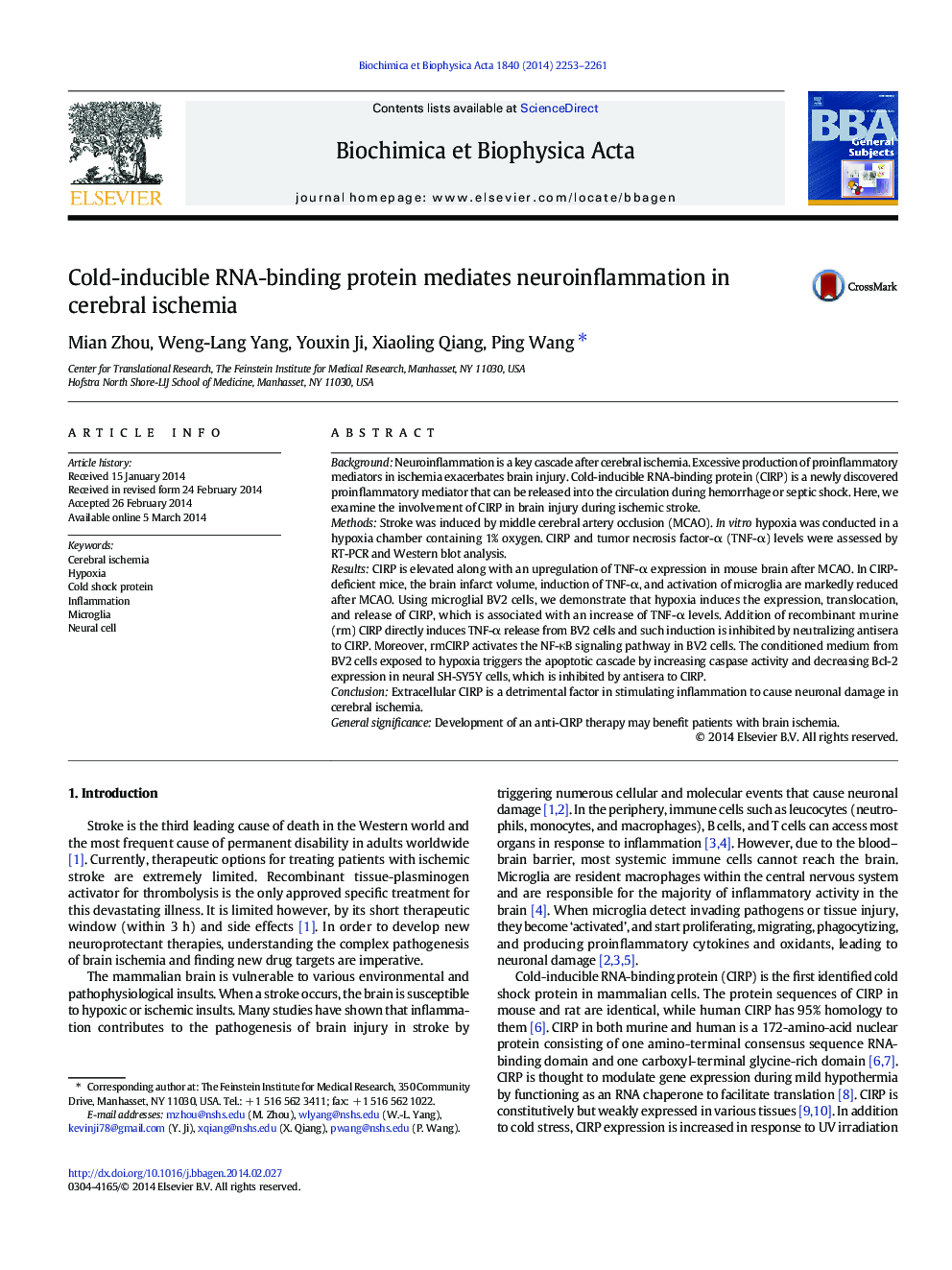| کد مقاله | کد نشریه | سال انتشار | مقاله انگلیسی | نسخه تمام متن |
|---|---|---|---|---|
| 1947501 | 1054614 | 2014 | 9 صفحه PDF | دانلود رایگان |

• CIRP, a cold shock protein, is elevated in mouse brain after cerebral ischemia.
• CIRP-deficiency ameliorates the severity of brain damage and inflammation in mice.
• CIRP activates NF-κB responsible for inflammatory cytokine release in microglia.
• Neutralizing CIRP attenuates neuroinflammation and neural cell apoptosis in vitro.
BackgroundNeuroinflammation is a key cascade after cerebral ischemia. Excessive production of proinflammatory mediators in ischemia exacerbates brain injury. Cold-inducible RNA-binding protein (CIRP) is a newly discovered proinflammatory mediator that can be released into the circulation during hemorrhage or septic shock. Here, we examine the involvement of CIRP in brain injury during ischemic stroke.MethodsStroke was induced by middle cerebral artery occlusion (MCAO). In vitro hypoxia was conducted in a hypoxia chamber containing 1% oxygen. CIRP and tumor necrosis factor-α (TNF-α) levels were assessed by RT-PCR and Western blot analysis.ResultsCIRP is elevated along with an upregulation of TNF-α expression in mouse brain after MCAO. In CIRP-deficient mice, the brain infarct volume, induction of TNF-α, and activation of microglia are markedly reduced after MCAO. Using microglial BV2 cells, we demonstrate that hypoxia induces the expression, translocation, and release of CIRP, which is associated with an increase of TNF-α levels. Addition of recombinant murine (rm) CIRP directly induces TNF-α release from BV2 cells and such induction is inhibited by neutralizing antisera to CIRP. Moreover, rmCIRP activates the NF-κB signaling pathway in BV2 cells. The conditioned medium from BV2 cells exposed to hypoxia triggers the apoptotic cascade by increasing caspase activity and decreasing Bcl-2 expression in neural SH-SY5Y cells, which is inhibited by antisera to CIRP.ConclusionExtracellular CIRP is a detrimental factor in stimulating inflammation to cause neuronal damage in cerebral ischemia.General significanceDevelopment of an anti-CIRP therapy may benefit patients with brain ischemia.
Journal: Biochimica et Biophysica Acta (BBA) - General Subjects - Volume 1840, Issue 7, July 2014, Pages 2253–2261